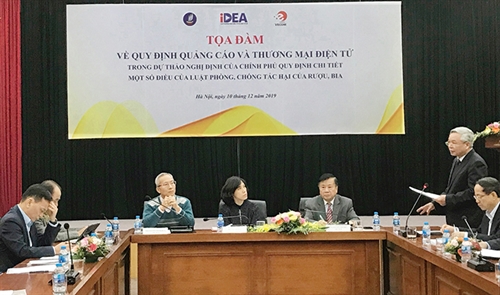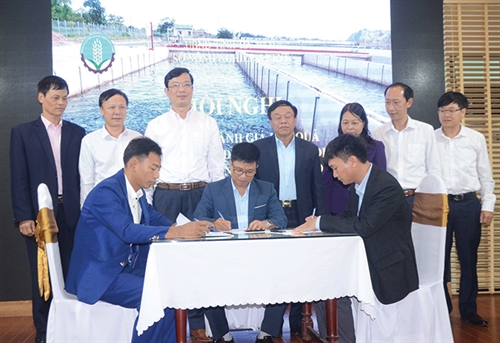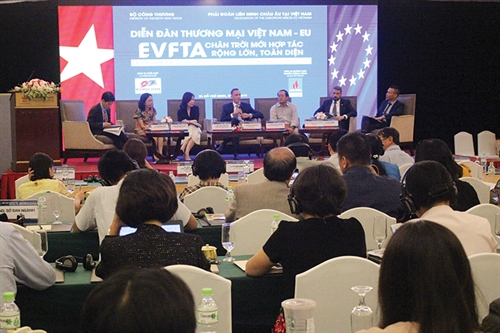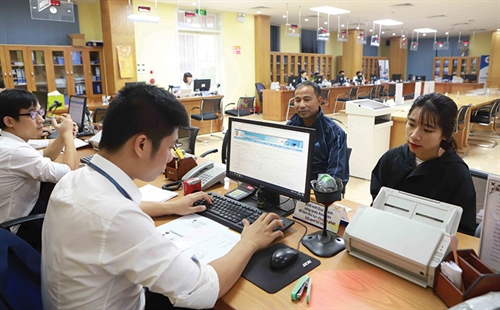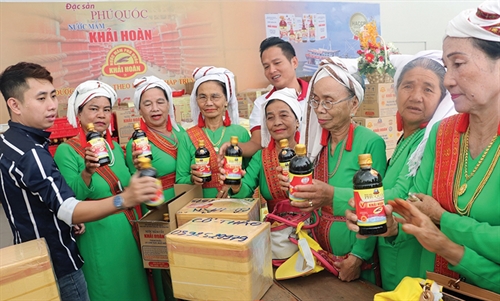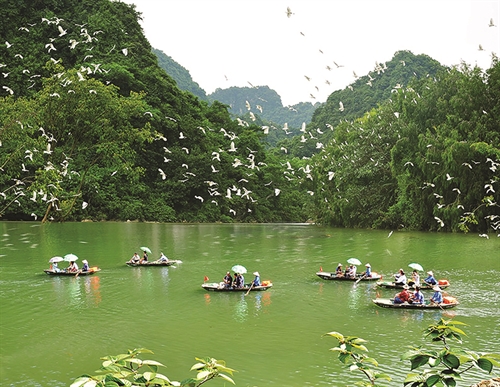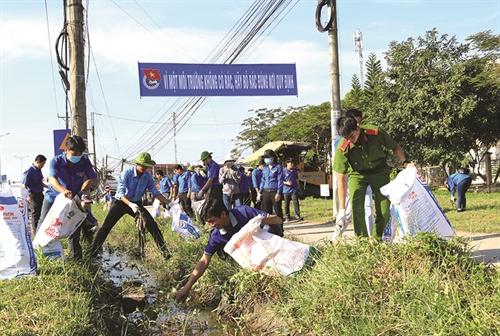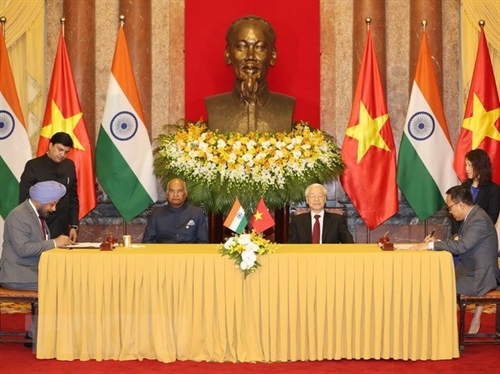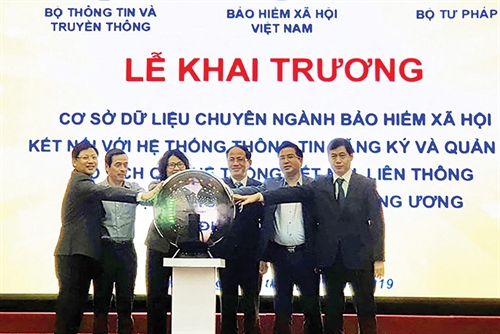 |
| Nuno F. Ribeiro, PhD Senior Lecturer, Tourism and Hospitality Management, RMIT University Vietnam |
By Nuno F. Ribeiro, PhD
Senior Lecturer, Tourism and Hospitality Management, RMIT University Vietnam
In 2017, Law No. 09/2017/QH14 dated June 19, 2017, was adopted by the 14th National Assembly of the Socialist Republic of Vietnam at its third session. It superced Law No. 44/2005/QH11, and came into force on January 1, 2018. For those less familiar with it, Law No. 09/2017/QH14 pertains to tourism, often known as Vietnam’s Tourism Law. Vietnam’s Tourism Law is, by all accounts, an excellent piece of legislation. It is clear and well thought out; it uses internationally-accepted World Tourism Organization (WTO)’s terminology and definitions for ease of understanding and international comparison; and it addresses all the critical components of tourism development, namely tourists, tourism resources, tourist attractions, tourism business(es), tour guides, and tourism promotion. Further, in a much-needed revision of Vietnam’s previous (2015) Tourism Law, the tourism legislation now in effect outlines more clearly and forcefully the State and Government’s responsbility(ies) in the management of tourism.
Having been involved in legislative efforts of similar nature in the past, I can appreciate the gargantuan amount of work that Vietnamese civil servants have put into this law. To these officials, I can only say: “Great job! Thank you for all your hard work”. I have no doubt that the positive effects of the development and enactment of this piece of legislation are already being felt, and will continue to endure for years to come.
There is one aspect of the current Tourism Law that I feel merits careful discussion. Chapter VI (articles 58 to 66) pertains to tour guides. Specifically, Article 59 disposes the conditions for the issuance of a tour guide card (without which one cannot act as as tour guide) for local, domestic, and international tour guides. These conditions are as follows (my emphasis):
- have Vietnamese nationality, reside in Vietnam;
- have full legal capacity;
- have no contagious diseases and do not use any narcotics;
- hold an associate degree or higher in tour guiding; in case of an associate degree or higher in another major, a certificate of training in domestic tour guiding is required.
- hold a college degree or higher in tour guiding; in case of a college degree or higher in another major, a certificate of training in domestic tour guiding is required;
- have a good command of the foreign language registered.
In theory, I have no objection to barring foreigners from being tour guides in Vietnam. Tourism is an immensely powerful phenomenon that affects all areas of society - it is wise to exert caution as to whom is allowed to (re)present Vietnam to visitors, both foreign and domestic. Only resident Vietnamese should be tour guides in Vietnam because foreigners may not be not be linguistically, historically, politically, and culturally competent to discuss Vietnam’s people(s), history, and culture, or they may otherwise provide an incorrect or negative image of the country to those of visit it. Again, in theory, this is fine.
However, the practice of tour guiding in Vietnam stands in stark contrast with both the text and the spirit of the law. There are literally thousands of unlicensed and foreign tour guides plying their trade in every major tourist destination in the country. The amount of trouble these unlicensed tour guides cause - including, in some tragic cases, even deaths - has become a matter of routine[i]. Further, enforcement efforts of tour guide licensing have met with with sharp criticism[ii], most of it directed at the Vietnam National Administration of Tourism (VNAT).
Increasingly, tourists look for authentic experiences; they want to experience Vietnam and other destinations through the eyes of a local; in this, tourists naturally gravitate towards individuals who mediate between local culture and outside visitors. The tourism literature calls these people “culture brokers[iii]”, or in more prosaic terms, tour guides. Regretfully, at the present time the majority of these tourism culture brokers in Vietnam are not Vietnamese. Foreign individuals and foreign corporations (of which AirBnB is a prime example) are sadly the majority, and not the minority, of those who (illegally) represent Vietnam to those who visit it. Their incentive for doing so is almost exclusively monetary. Their training and education is, with meritorious exceptions, non-existent.
According to recent research[iv], tourists who use the services of a tour guide (even a bad one), exhibit higher levels of satisfaction with their tourist experience and are far more likely to return to the destination, particularly in the case of cultural and urban tourism. Should we not ensure then, for Vietnam’s tour guides to be the best they can be? I think so. Vietnam’s more valuable tourism asset is its culture: let us do everything in our power to preserve it.-
Viet Nam News. (2019, June 12). Unlicensed tours cause safety problems. Available online at https://vietnamnews.vn/society/521193/unlicensed-tours-cause-safety-problems.html#ozpyGUJbUfYPYj5Q.97
Chan, A., Hsu, C. H., & Baum, T. (2015). The impact of tour service performance on tourist satisfaction and behavioral intentions: A study of Chinese tourists in Hong Kong. Journal of Travel & Tourism Marketing, 32(1-2), 18-33.
Huang, S., Weiler, B., & Assaker, G. (2015). Effects of interpretive guiding outcomes on tourist satisfaction and behavioral intention. Journal of Travel Research, 54(3), 344-358.
Khuong, M. N., & Nguyen, P. A. (2017). Factors Affecting Tourist Destination Satisfaction and Return Intention—A Study in Ho Chi Minh City, Vietnam. Journal of Economics, Business and Management, 5(2).
Mansour, J. S., & Ariffin, A. A. M. (2017). The effects of local hospitality, commercial hospitality and experience quality on behavioral intention in cultural heritage tourism. Journal of Quality Assurance in Hospitality & Tourism, 18(2), 149-172.
